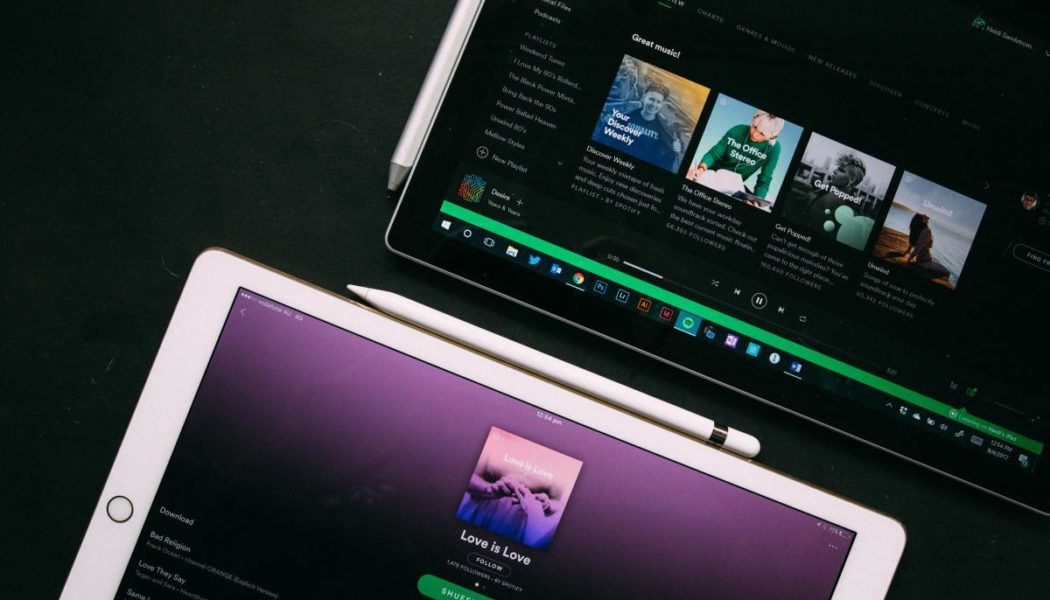Congressional leaders representing the Caucus on Multicultural Media are taking issue with a perceived lack of financial transparency on the part of Spotify.
In a recent letter dated March 26th and signed by Democrat Representatives Tony Cardenas, Yvette D. Clarke, and Judy Chu, the caucus raised concerns that the streaming giant’s controversial Discovery Mode presents artists with a “prisoner’s dilemma,” when it comes to their ability to monetize on the platform.
Discovery Mode, unveiled in November of 2020, is a relatively new feature on the Spotify platform which allows artists the option to boost the visibility of their songs on the platform in exchange for a lower promotional royalty rate.
As the letter identifies, however, there is the chance that depending upon how many artists opt into Discovery Mode, the theoretical benefit of an increase in promotion may be wiped out.
“If two competing artists both enroll their newest track in the program, any benefit could be cancelled out, meaning that the only profit goes to your company’s bottom line,” the letter reads. “For artists of diverse backgrounds, who often struggle to access capital, the premise that they must now pay in order to be found by new consumers on Spotify represents an especially serious problem.”
As Variety notes, the function has come under scrutiny previously by House Judiciary Committee Chairman Jerry Nadler who, along with Representative Hank Johnson Jr., wrote to Spotify CEO Daniel Ek and expressed concern that Discovery Mode “may set in motion a ‘race to the bottom’ in which artists and labels feel compelled to accept lower royalties as a necessary way to break through an extremely crowded and competitive music environment.”
The letter ultimately calls for Spotify to publish a list of the tracks enrolled in Discovery Mode on a monthly basis along with the promotional royalty rates of the tracks included in the program.
You can read the full letter below, per Variety.
Dear Mr. Ek:
Scroll to Continue
Recommended Articles
We write to you as the co-chairs of the Congressional Caucus on Multicultural Media to express our concerns about Spotify’s approach to consumer transparency and disclaimers. Your company’s questionable approach has been brought to light in public by recent scandal and your company’s decision to add “content advisory flags” to podcast episodes about the COVID-19 pandemic that include misinformation, like the Joe Rogan podcast.
As you are well-aware, the recent episode led to a standoff between your company and a number of iconic artists including Neil Young and India.Arie. The New York Times reported that this is “the latest strain in the company’s complex and frequently troubled relationship with artists.” We believe that one of your new music promotion programs, Discovery Mode, is another troubling move by your company that sacrifices honesty in the name of profit.
As reported in the press and on your website, Discovery Mode offers recording artists and copyright owners a heightened push of enrolled songs to consumers on algorithmic plays, including streams through Spotify’s Radio and Autoplay formats, in exchange for reduced royalty payments for the use of those sound recordings by the platform. However, it is our understanding that your program is unfair to both artists and consumers because, again, it lacks transparency.
Choosing to accept reduced royalty payments is a serious risk for musicians, who would only benefit if Discovery Mode yields more total streams for an artist across their entire catalogue, not just the track covered by the program. And if two competing artists both enroll their newest track in the program, any benefit could be cancelled out, meaning that the only profit goes to your company’s bottom line. For artists of diverse backgrounds, who often struggle to access capital, the premise that they must now pay in order to be found by new consumers on Spotify represents an especially serious problem.
We would ask that Spotify publish, on a monthly basis, the name of every track enrolled in the program and the royalty discount agreed upon. Without this transparency, you are asking artists to make a blind choice, and it represents a classic prisoner’s dilemma.
Regarding consumers, they too deserve transparency. Spotify fails to tell consumers that they are listening to paid content when it feeds them Discovery Mode songs. We believe there is no meaningful distinction between paying a lower royalty rate and accepting payment for placement on the service. In fact, Spotify advertises to listeners that its Radio feature offers “continuous music based on your personal taste and no ads if you are a Premium member.”i
Based on our understanding of the program, this appears to make Discovery Mode a straightforward example of misleading native advertising, which preys on unwitting consumers, and has been a recent area of enforcement activity by the Federal Trade Commission. The Discovery Mode program seems identical to deceptive native advertising like undisclosed promotional tweets from paid social media influencers or inadequately described sponsored search results.
We seek information from your company to determine if Discovery Mode violates the foundational truth-in-advertising principle that “it’s deceptive to mislead consumers about the commercial nature of content.”ii We understand that relevant FTC guidelines disclosures of paid content to be “clear and conspicuous.”iii Among the factors considered under this standard are whether disclosure is prominent and unavoidable, and nothing we see on your website or any interface your service meets those criteria. Why does Spotify not comply with these federal guidelines, put in place to protect consumers?
We would appreciate a response to the concerns raised in this letter and the question above to help inform our Caucus’ priorities for the year. We also invite you to join us in promoting a more equitable media landscape and in that spirit would ask that you seriously consider whether Discovery Mode deceives consumers and undervalues independent artists.
Signed,
Yvette D. Clarke Judy Chu Tony Cárdenas Member of Congress Member of Congress Member of Congress
 [flexi-common-toolbar] [flexi-form class=”flexi_form_style” title=”Submit to Flexi” name=”my_form” ajax=”true”][flexi-form-tag type=”post_title” class=”fl-input” title=”Title” value=”” required=”true”][flexi-form-tag type=”category” title=”Select category”][flexi-form-tag type=”tag” title=”Insert tag”][flexi-form-tag type=”article” class=”fl-textarea” title=”Description” ][flexi-form-tag type=”file” title=”Select file” required=”true”][flexi-form-tag type=”submit” name=”submit” value=”Submit Now”] [/flexi-form]
[flexi-common-toolbar] [flexi-form class=”flexi_form_style” title=”Submit to Flexi” name=”my_form” ajax=”true”][flexi-form-tag type=”post_title” class=”fl-input” title=”Title” value=”” required=”true”][flexi-form-tag type=”category” title=”Select category”][flexi-form-tag type=”tag” title=”Insert tag”][flexi-form-tag type=”article” class=”fl-textarea” title=”Description” ][flexi-form-tag type=”file” title=”Select file” required=”true”][flexi-form-tag type=”submit” name=”submit” value=”Submit Now”] [/flexi-form]











Tagged: Congress, Daniel Ek, entertainment blog, INDUSTRY, music blog, Royalties, Spotify, Streaming